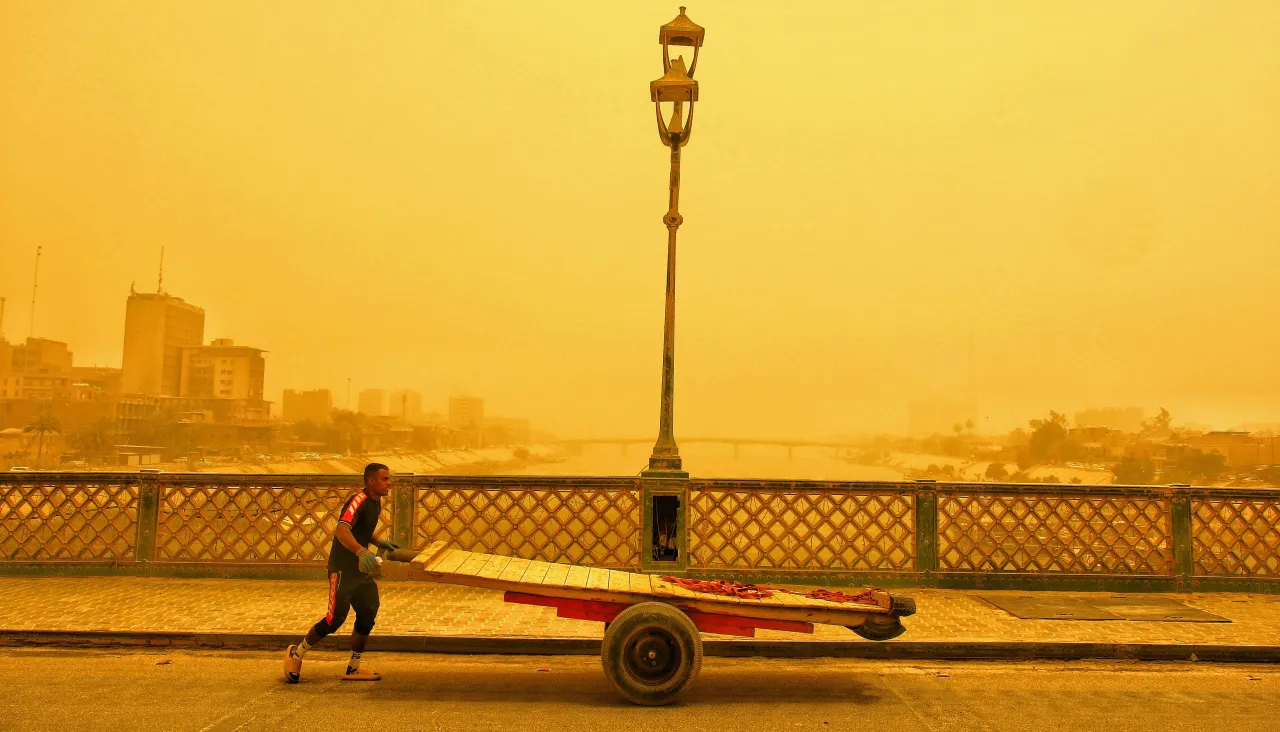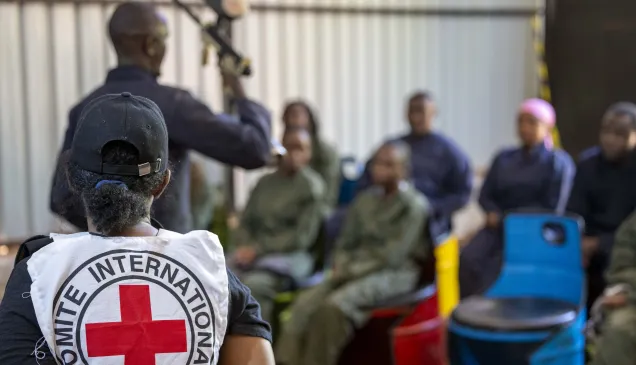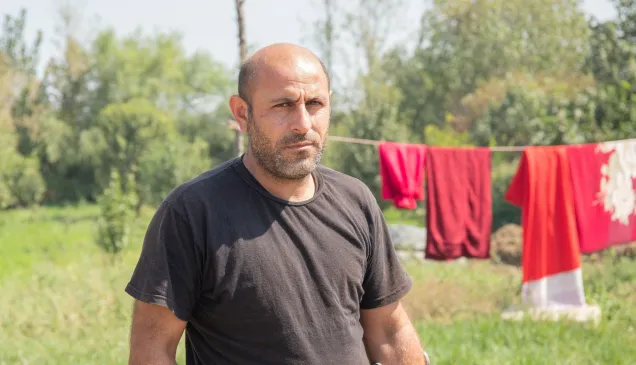Iraq: A brutal tale of climate change in pictures
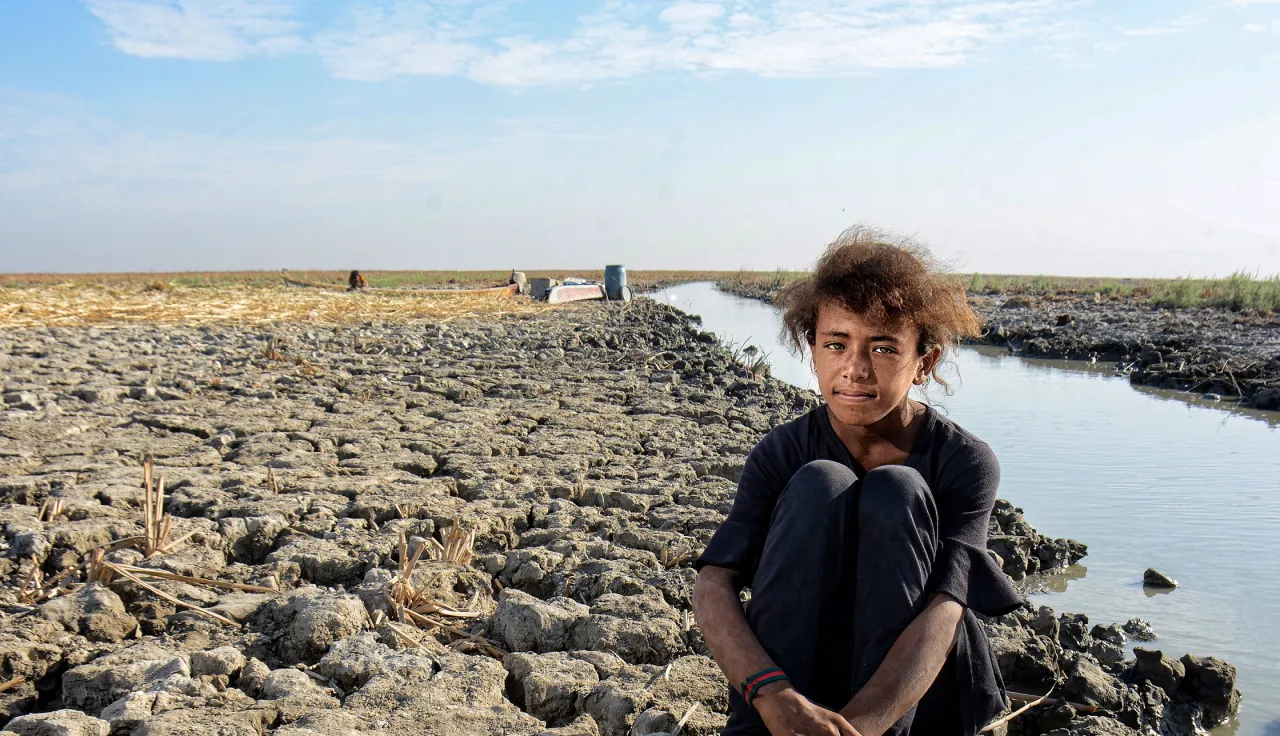
In 2022, the Iraqi Red Crescent and the International Committee of the Red Cross delegation in Iraq launched a photography contest on climate change. The results are stunning. Have you ever visited this country in the past, be prepared to face a reality that will challenge your memories.
Climate Change in Iraq
If you have never been to Iraq, then what you will see in the pictures is not statistics about Iraq being "the fifth-most vulnerable country to climate breakdown".
In Lisan Al-Arab ("Tongue of Arabs") one of the most extensive dictionaries of Arabic words, the Arab scholar and historian Ibn Manzur mentions that the people of Hijaz used to call lands close to the sea "Iraq", hence the reason Iraq was given that name was "because it lies on the shore of the Tigris, so close to the sea". It was also said that the name implies "how the roots of trees and palm trees intertwine". Others explained that the word Iraq was an arabization of an Iranian name, meaning "many palm trees", so the Arabs named it Iraq.
Today's reality is far less poetic.
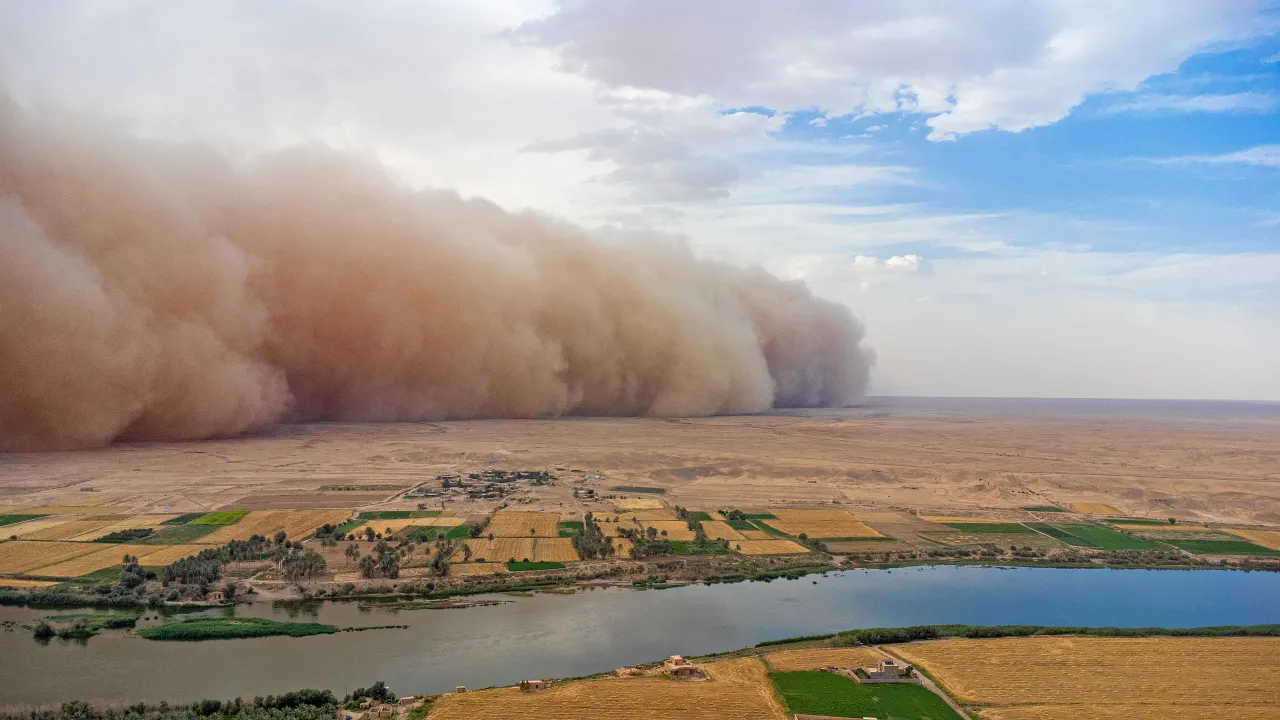
These are the lands of Iraq, which were once adorned with green; rich, and fertile. Yet, we see them today while sand creeps over them slowly and fills the air. People of Iraq, who used to welcome the rain with cheerful faces, now cover their faces because it is raining dust.
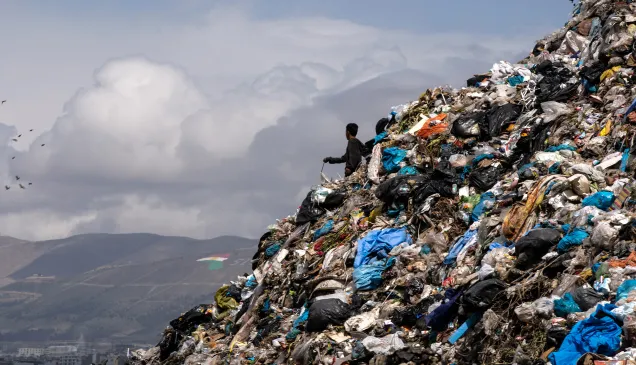
Waste Hill in Sulaymaniyah blocks the green land and mountains.
Do you see that? Look again. Do you wonder how waste hills, clear skies, and green land come together in one landscape? Will those hills one day touch the clouds? Behind the high hills of waste in Sulaymaniyah, the beauty of Iraq is still spreading as far as the eye can see, captivating the beholder, even when it is gradually obscured by high hills of ugliness.
When you walk by this bank and are told that in Chibaish Marshes, Dhi Qar Governorate, you most probably think you will enjoy seeing rays of the sun sparkling on the water and hearing the capturing sound of water flowing. However, the picture tells a different story; the viewer may doubt that water has ever flowed here, as the boats stand still on dry lands.
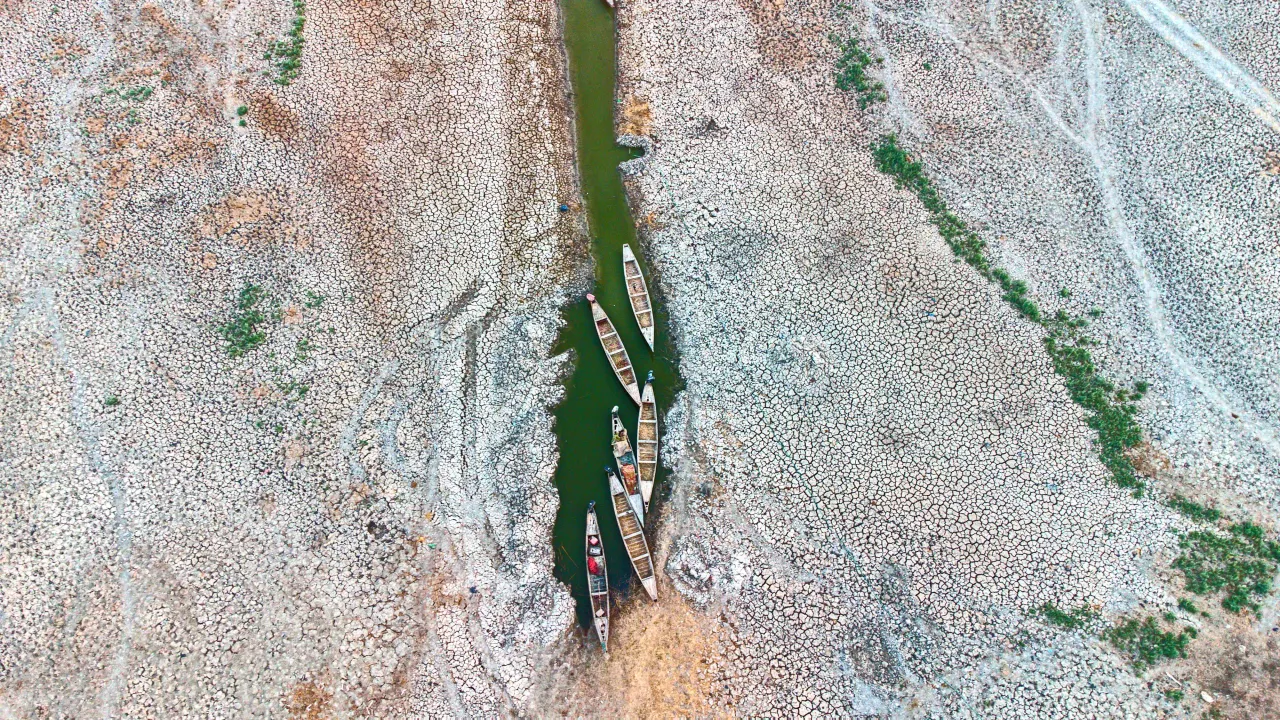
What about the children here? How do they feel? They can never tell how this place used to be in the past while they are treading on the cracked and dry land, and the only witness to the bounty of the marshes is the memory of their ancestors. Their Grandparents saw the green land, fertility and water, yet these children see nothing but dry land and drought.
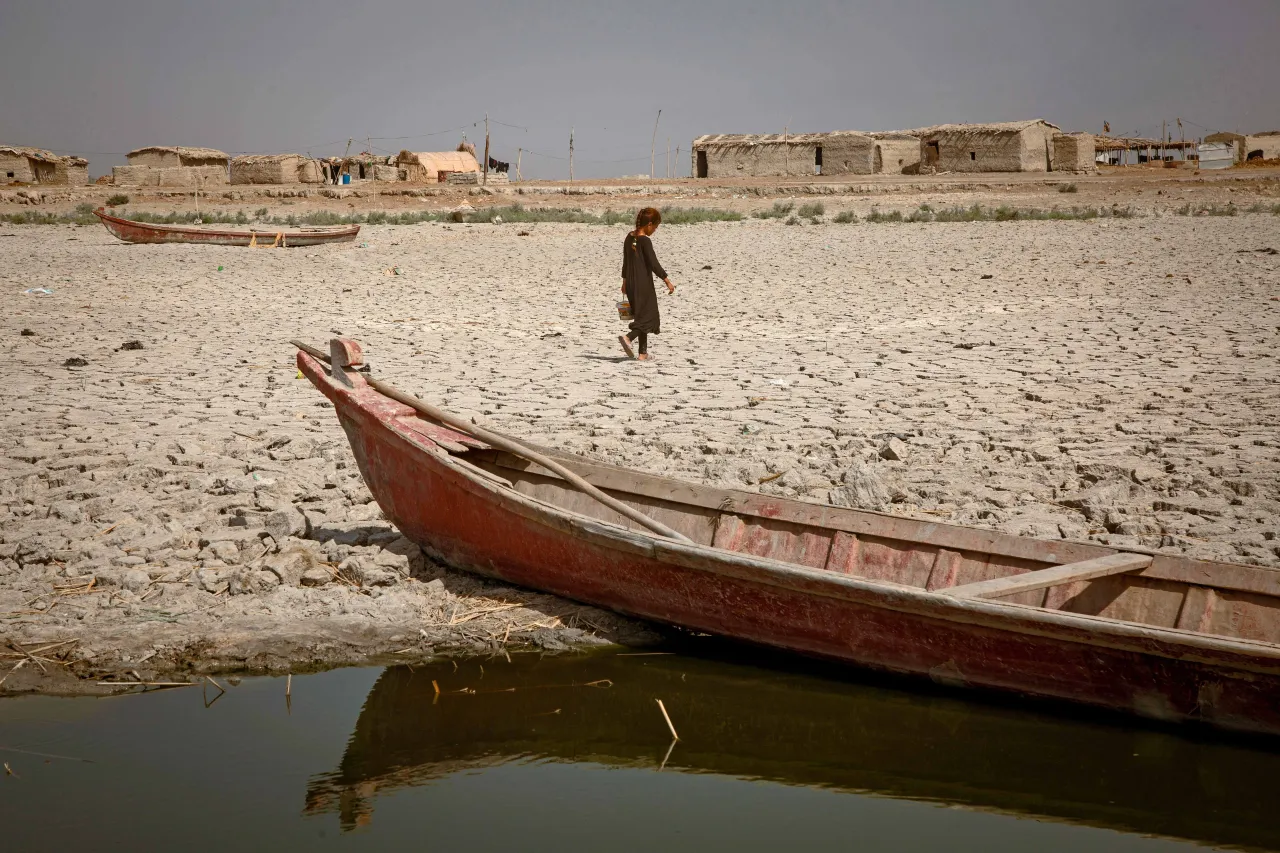
While ancestors saw water and grandchildren saw nothing but drought; the generation in-between saw both. It is a generation that is nostalgic about the past and is hopeful for changing the present. In this photo, in Dhi Qar Chibayish, a man steps on the land of a thirsty village, heading for what remains of the marshes to bring reeds and sedges to feed his cattle.
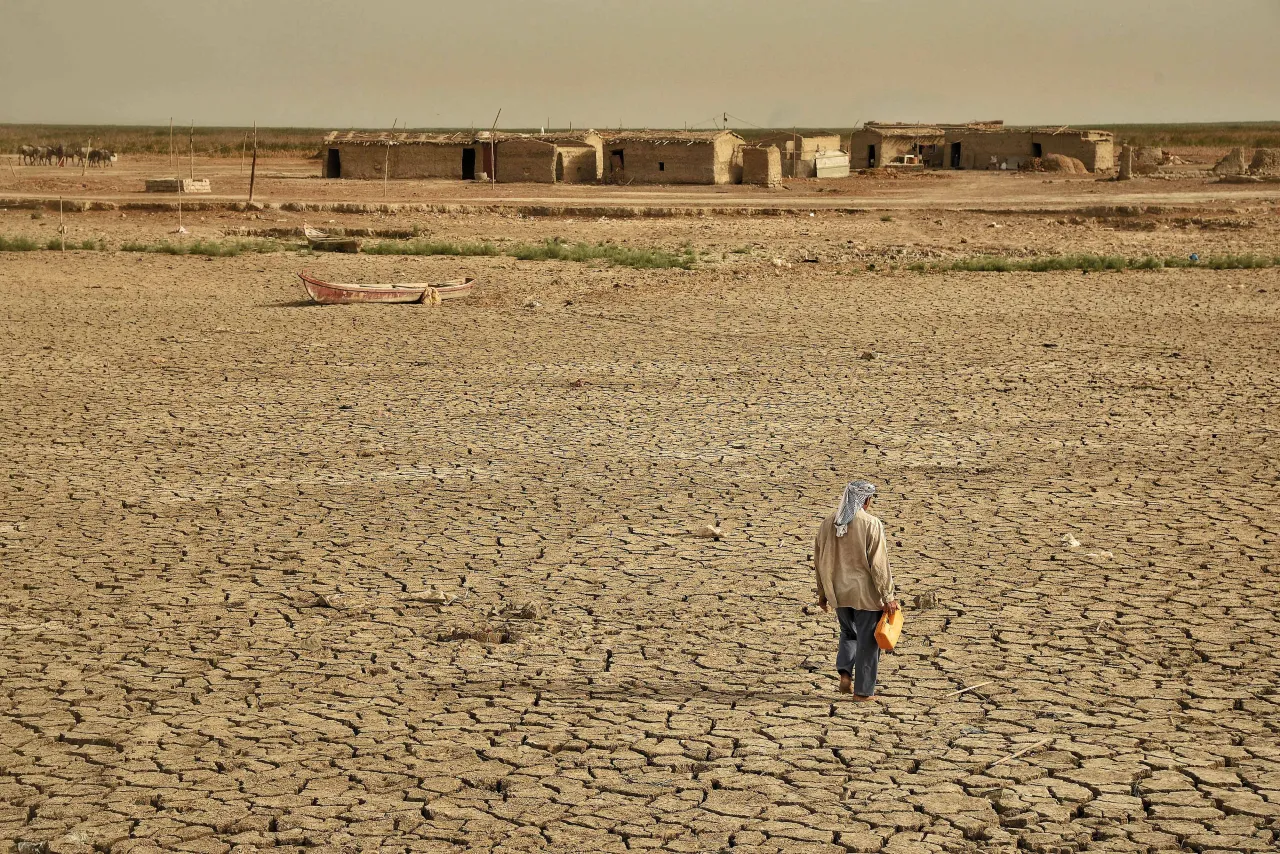
This is the present: traces on a land after water has receded. But what about tomorrow? The answer is shrouded in ambiguity so long as we think of climate change as a distant catastrophe. Iraq is living through the ugly reality of climate change, and Iraqis are of no need for numbers, statistics or comparisons; they are actually living it.
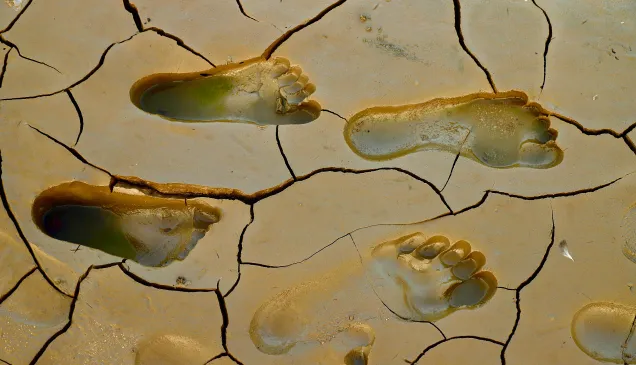
Golden cracks in Al-Faw in the south of Iraq.
More facts about Climate Change in Iraq
- Iraq is the fifth-most vulnerable country to climate breakdown, given the violent climatic phenomena such as high temperatures, insufficiency and lack of rain, drought and water scarcity, and frequent sand and dust storms and floods.
- In 2013, more than 300 sandstorms blew in Iraq, while between 1950 and 1990 the number of sandstorms was less than 25 per year.
- 94% of the displaced population in the southern governorates of Iraq cited water scarcity as a major reason for their displacement.
- In 2001, 90% of the marshes disappeared, so Iraq has lost biodiversity, which was the cause of large-scale displacement.
Know more about Facing the impact of climate change and armed conflict in the Near and Middle East from ICRC/Norwegian Red Cross
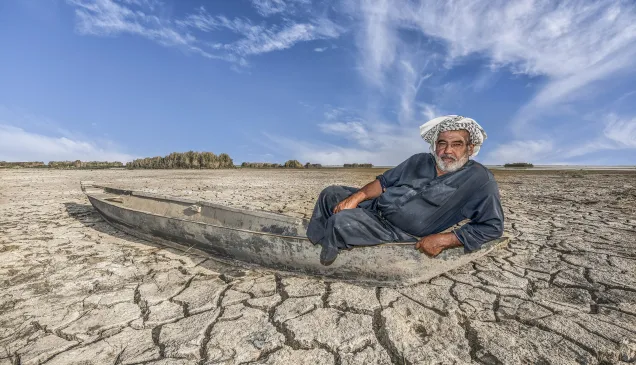
Maysan marshes that are drying up due to water shortages. |
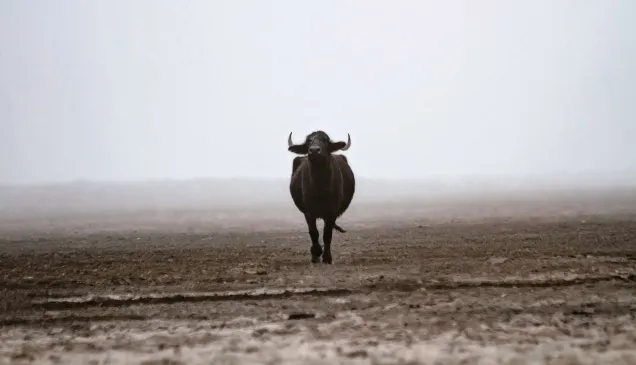
Climate change in Iraq threatens all living creatures after the situation has changed completely.
